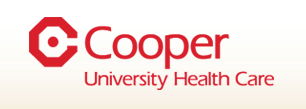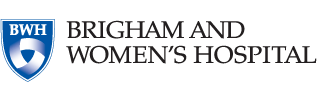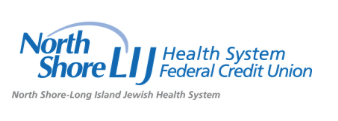Fludarabine and Busulfan Followed by Allogeneic Stem Cell Transplant in Treating Older Patients With Acute Myeloid Leukemia in First Complete Remission
| Status: | Completed |
|---|---|
| Conditions: | Blood Cancer, Hematology, Leukemia |
| Therapuetic Areas: | Hematology, Oncology |
| Healthy: | No |
| Age Range: | 60 - 74 |
| Updated: | 6/14/2018 |
| Start Date: | January 2004 |
| End Date: | June 15, 2016 |
A Phase II Study Of Allogeneic Transplant For Older Patients With AML In First Morphologic Complete Remission Using A Non-Myeloablative Preparative Regimen
This phase II trial studies how well fludarabine and busulfan followed by a donor
(allogeneic) stem cell transplant work in treating older patients with acute myeloid leukemia
that is in first complete remission. Giving low doses of chemotherapy, such as fludarabine
and busulfan, before a donor peripheral blood stem cell transplant helps stop the growth of
cells in the bone marrow, including normal blood-forming cells (stem cells) and cancer cells.
It may also stops the patient's immune system from rejecting the donor's stem cells. When the
healthy stem cells from a donor are infused into the patient they may help the patient's bone
marrow make stem cells, red blood cells, white blood cells, and platelets. The donated stem
cells may replace the patient's immune system and help destroy any remaining cancer cells.
Sometimes the transplanted cells from a donor can make an immune response against the body's
normal cells (called graft-versus-host disease). Giving tacrolimus, methotrexate, and rabbit
antithymocyte globulin before or after the transplant may stop this from happening.
(allogeneic) stem cell transplant work in treating older patients with acute myeloid leukemia
that is in first complete remission. Giving low doses of chemotherapy, such as fludarabine
and busulfan, before a donor peripheral blood stem cell transplant helps stop the growth of
cells in the bone marrow, including normal blood-forming cells (stem cells) and cancer cells.
It may also stops the patient's immune system from rejecting the donor's stem cells. When the
healthy stem cells from a donor are infused into the patient they may help the patient's bone
marrow make stem cells, red blood cells, white blood cells, and platelets. The donated stem
cells may replace the patient's immune system and help destroy any remaining cancer cells.
Sometimes the transplanted cells from a donor can make an immune response against the body's
normal cells (called graft-versus-host disease). Giving tacrolimus, methotrexate, and rabbit
antithymocyte globulin before or after the transplant may stop this from happening.
PRIMARY OBJECTIVES:
I. Determine if allogeneic transplantation from a matched sibling or unrelated donor using a
non-myeloablative preparative regimen results in a 2-year disease-free survival (DFS) that is
better than historical results using standard chemotherapy.
SECONDARY OBJECTIVES:
I. Determine 2-year actuarial risks of transplant-related mortality, acute and chronic
graft-versus-host (GVHD) disease and relapse among patients with acute myeloid leukemia (AML)
in first complete remission (CR1) following a non-myeloablative preparative regimen.
II. To examine recovery of T and B cell number and function following non-myeloablative stem
cell transplant.
III. To examine the time course of T, B and myeloid progenitor chimerism following this
preparative regimen.
IV. To characterize the pharmacokinetics of intravenous busulfan used in a non-myeloablative
preparation regimen in AML patients age >= 60 years.
OUTLINE:
PREPARATIVE REGIMEN: Patients receive fludarabine intravenously (IV) over 30 minutes on days
-7 to -3 and busulfan IV over 2 hours 4 times per day (every 6 hours) on days -4 and -3.
GRAFT-VERSUS-HOST DISEASE (GVHD) PROPHYLAXIS: Patients receive tacrolimus orally (PO) or IV
twice daily (BID) on days -2 with taper between days 90-120, and stopping by days 150-180.
Patients also receive methotrexate IV on days 1, 3, 6, and 11 and rabbit antithymocyte
globulin IV over 4-6 hours on days -4 through -2.
ALLOGENEIC PERIPHERAL BLOOD STEM CELL TRASNPLANTATION (PBSC): Patients undergo allogeneic
PBSC transplant on day 0. Patients then receive filgrastim subcutaneously (SC) daily
beginning on day 12 and continuing until blood counts recover.
Patients are followed monthly for 1 year, every 3 months for 1 year, and then every 6 months
for 3 years.
I. Determine if allogeneic transplantation from a matched sibling or unrelated donor using a
non-myeloablative preparative regimen results in a 2-year disease-free survival (DFS) that is
better than historical results using standard chemotherapy.
SECONDARY OBJECTIVES:
I. Determine 2-year actuarial risks of transplant-related mortality, acute and chronic
graft-versus-host (GVHD) disease and relapse among patients with acute myeloid leukemia (AML)
in first complete remission (CR1) following a non-myeloablative preparative regimen.
II. To examine recovery of T and B cell number and function following non-myeloablative stem
cell transplant.
III. To examine the time course of T, B and myeloid progenitor chimerism following this
preparative regimen.
IV. To characterize the pharmacokinetics of intravenous busulfan used in a non-myeloablative
preparation regimen in AML patients age >= 60 years.
OUTLINE:
PREPARATIVE REGIMEN: Patients receive fludarabine intravenously (IV) over 30 minutes on days
-7 to -3 and busulfan IV over 2 hours 4 times per day (every 6 hours) on days -4 and -3.
GRAFT-VERSUS-HOST DISEASE (GVHD) PROPHYLAXIS: Patients receive tacrolimus orally (PO) or IV
twice daily (BID) on days -2 with taper between days 90-120, and stopping by days 150-180.
Patients also receive methotrexate IV on days 1, 3, 6, and 11 and rabbit antithymocyte
globulin IV over 4-6 hours on days -4 through -2.
ALLOGENEIC PERIPHERAL BLOOD STEM CELL TRASNPLANTATION (PBSC): Patients undergo allogeneic
PBSC transplant on day 0. Patients then receive filgrastim subcutaneously (SC) daily
beginning on day 12 and continuing until blood counts recover.
Patients are followed monthly for 1 year, every 3 months for 1 year, and then every 6 months
for 3 years.
Eligibility Criteria:
- Patients with acute myeloid leukemia (AML) (excluding French-American-British [FAB]
classification system M3) who have achieved a first morphologic complete remission and
who meet the criteria below; patients with preceding myelodysplastic syndrome (MDS) or
treatment-related AML are eligible; patients with prior central nervous system (CNS)
involvement are eligible as long as disease is in remission at transplant; patients
with acute leukemia following blast transformation of prior chronic myeloid leukemia
(CML) or other myeloproliferative disease are excluded
- Complete remission (CR) will be defined according to the revised recommendations of
the International Working Group (24) as all of the following:
- Normal bone marrow morphology with < 5% blasts
- Absolute neutrophil count (ANC) > 1,000/uL, referring to the count needed to
confirm that the patient achieved a CR
- Platelet count > 100,000/uL
- No extramedullary leukemia
- No blasts in peripheral blood
- CR was achieved after one or two (but no more than two) cycles of induction
chemotherapy with standard cytotoxic chemotherapy (e.g., cytarabine and an
anthracycline) or after no more than four cycles of a hypomethylating agent containing
regimen including either 5-azacytidine or decitabine
- Patients may have received as many as but no more than two cycles of consolidation
therapy prior to transplant; any consolidation regimen that does not require
transplant can be used; no more than 6 months can elapse from documentation of
morphologic CR to transplant; the platelet count does not need to be > 100,000/uL
after consolidation, as long as the bone marrow assessment prior to transplant does
not show relapse
- Identification of hematopoietic cell donor
- >= 4 weeks since prior chemotherapy, radiation therapy, and surgery
- Performance status 0-2
- Diffusion capacity of carbon monoxide (DLCO) > 40% with no symptomatic pulmonary
disease
- Left ventricular ejection fraction (LVEF) by multi gated acquisition scan (MUGA) or
echocardiogram (ECHO) >= 30%
- No uncontrolled diabetes mellitus or active serious infection requiring antibiotics
- No known hypersensitivity to E. coli-derived products
- No human immunodeficiency virus (HIV) infection
- Calculated creatinine clearance >= 40 cc/min
- Bilirubin < 2 mg/dL
* If bilirubin is 2-3 mg/dL, but direct bilirubin is normal then patient will be
considered eligible
- Aspartate aminotransferase (AST) < 3 x upper limit of normal
- DONOR: HLA-identical sibling (6/6); the donor must be determined to be an human
leukocyte antigen (HLA)-identical sibling (6/6) by serologic typing for class (A, B)
and low resolution molecular typing for class II (DRB1)
- DONOR: Matched unrelated donor (10/10); high resolution molecular typing at the
following loci is required: HLA-A, -B, -C, -DRB1, and -DQB1
- DONOR: the donor must be healthy and must be an acceptable donor as per institutional
standards for stem cell donation
- DONOR: the donor must have no significant cardiopulmonary, renal, endocrine, or
hepatic disease
- DONOR: there is no donor age restriction if the donor is a matched sibling
- DONOR: syngeneic donors are not eligible
We found this trial at
21
sites
1 Medical Center Blvd
Winston-Salem, North Carolina 27103
Winston-Salem, North Carolina 27103
(336) 716-2011

Wake Forest University Comprehensive Cancer Center Our newly expanded Comprehensive Cancer Center is the region’s...
Click here to add this to my saved trials
Click here to add this to my saved trials
Beth Israel Deaconess Medical Center Beth Israel Deaconess Medical Center (BIDMC) is one of the...
Click here to add this to my saved trials
Roswell Park Cancer Institute Welcome to Roswell Park Cancer Institute (RPCI), America's first cancer center...
Click here to add this to my saved trials
902 Savannah Road
Lewes, Delaware 19958
Lewes, Delaware 19958
(302) 645-3770

Tunnell Cancer Center at Beebe Medical Center The Robert & Eolyne Tunnell Cancer Center at...
Click here to add this to my saved trials
Click here to add this to my saved trials
Click here to add this to my saved trials
425 E River Pkwy # 754
Minneapolis, Minnesota 55455
Minneapolis, Minnesota 55455
612-624-2620

Masonic Cancer Center at University of Minnesota The Masonic Cancer Center was founded in 1991....
Click here to add this to my saved trials
1300 York Avenue # A421
New York, New York 10065
New York, New York 10065

New York Weill Cornell Cancer Center at Cornell University Welcome to the Division of Hematology...
Click here to add this to my saved trials
Mount Sinai Med Ctr Founded in 1852, The Mount Sinai Hospital is a 1,171-bed, tertiary-care...
Click here to add this to my saved trials
1600 Divisadero Street
San Francisco, California 94115
San Francisco, California 94115
888.689.8273

UCSF Helen Diller Family Comprehensive Cancer Center UCSF’s long tradition of excellence in cancer research...
Click here to add this to my saved trials
42 E Laurel Rd # 2545
Voorhees, New Jersey 08043
Voorhees, New Jersey 08043
(800) 826-6737

Cancer Institute of New Jersey at Cooper - Voorhees Cooper University Health Care, the clinical...
Click here to add this to my saved trials
Click here to add this to my saved trials
44 Binney St
Boston, Massachusetts 02115
Boston, Massachusetts 02115
(617) 632-6364

Dana-Farber/Brigham and Women's Cancer Center Boston's Brigham and Women's Hospital (BWH) is an international leader...
Click here to add this to my saved trials
Click here to add this to my saved trials
Columbus, Ohio 43210
Click here to add this to my saved trials
Click here to add this to my saved trials
Click here to add this to my saved trials
Long Island Jewish Medical Center Serving North Shore LIJ Health System employees and their families....
Click here to add this to my saved trials
4701 Ogletown-Stanton Road
Newark, Delaware 19713
Newark, Delaware 19713
302-623-4450

CCOP - Christiana Care Health Services Christiana Care's Cancer Research Program is part of a...
Click here to add this to my saved trials
Click here to add this to my saved trials




